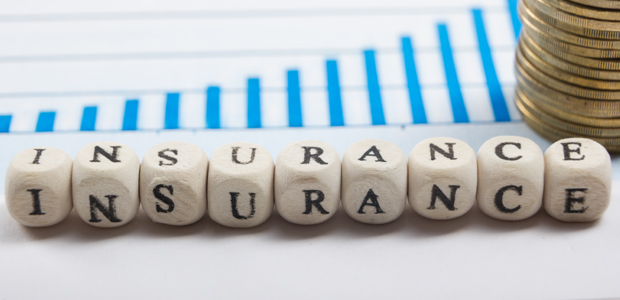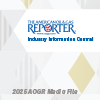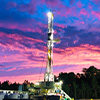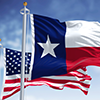
Business Insurance
COVID-19 Impacts Trigger Business Interruption Claims
By Sean Clements
HOUSTON–The COVID-19 pandemic continues to disrupt Americans’ daily lives, with mandatory or voluntary quarantines, “social distancing” measures, cancellation of events and gatherings, and reduced or restricted travel throughout the country and around the world. Coronavirus also is creating havoc in the financial markets and bringing all types of business to a standstill. As a result, businesses will likely see immediate liquidity problems and face severe financial impacts.
In addition, insureds will likely look to their brokers and underlying policies to determine if COVID-19 and associated government actions will trigger an insured event under their policies. Whether the losses are covered and under what form of loss will depend on the terms and conditions of each individual insurance policy and the circumstances of the loss. Through conversations with various brokers, we believe the vast majority of the insured market will lack business interruption and other associated coverages for COVID-19.
In early April, while the impact of the virus appeared to have been peaking, companies had already reportedly had claims tied to COVID-19 rejected for payment under their business interruption insurance. In the rejections, insurers cited various terms and conditions, signaling that those companies’ ability to recoup losses will likely be fought in court on a policy-by-policy basis on contractual language.
Business interruption is a temporary suspension in business operations on either a partial or complete basis as a result of a specific and sometimes catastrophic event. In terms of insurance coverage, the loss event is the result of a covered peril such as a fire, hurricane or tornado. Business interruption insurance is not sold as a separate policy. However, it can be either added to a property/casualty policy or included in a comprehensive package policy as a rider.
In almost every case, business interruption insurance policies require “named perils policies,” whereby physical damage, loss or destruction to tangible property needs to be triggered in order to be insured. It is likely that COVID-19 will not meet the coverage trigger threshold in and of itself because it does not cause “physical damage” to a property in the same way an “act of God” event or peril–such as fires, hurricanes or tornados–would. Even if losses tied to COVID-19 are covered, it is unlikely companies that have business interruption insurance will be able to collect damage compensation.
For example, when Hurricane Rita swept through the U.S. Gulf Coast in 2005, mostly affecting Louisiana, many establishments in Houston experienced power outages. Building structures did not suffer actual physical damage directly caused by the hurricane itself, and therefore the impacted establishments had no standing in building a case seeking claims for compensation of damages, despite municipality mandated evacuations.
Extensive Potential Damage
Recently, New York and New Jersey, and we believe the federal government, are pushing on carriers to insure for losses associated with COVID-19, even where it’s specifically limited. The federal government needs to consider how that cost will be supported since losses from COVID-19 likely will be large enough to crash the insurance and reinsurance market. On top of that, claims will still take time to pay. That means insureds will still suffer, the economy will suffer, and the potential damage will extend to the working class, brick-and-mortar America, and the insurance market, compounding the economic impact.
Each carrier has its own unique language, so understanding a particular carrier’s form and the language contained within is critical. For example, the wording contained in FM Global’s standard business interruption select advantage form has extensions in both business interruption and property damage for communicable diseases and infections, but they are limited to $1 million for remediation and $1 million for business interruption losses.
Some brokers place “special perils” wording in their forms. This typically includes coverage for infectious diseases. Hotels drew on this language for the Zika virus outbreak in 2015. However, this language tends to be applied mostly to the hospitality, real estate and healthcare industries. And within those industries, we believe that only 10% of the market carries this specific type of coverage.
First-Party Property Policies
Many businesses’ first-party property insurance policies include coverage, not only for tangible property damage, but also for lost profits resulting from that damage. The coverage for lost income often covers losses resulting from:
- Damage to the policyholder’s own property (business interruption);
- Damage to the property of a customer, supplier or a supplier’s supplier (contingent business interruption);
- Government action such as evacuation orders (act of civil/military authority); and
- Damage to properties that attract customers to the policyholder’s business (leader property).
The event that triggers any of these coverages is physical property damage, without which there will be no coverage for lost profits under a first-party property policy.
The fundamental questions with respect to property insurance coverage for every coronavirus-related loss is whether the mere presence of the virus can cause or constitute “physical damage,” and whether such damage played a role in the loss of income. Property damage as a limiting factor is not the end of hope. Policies may still allow for additional forms of loss through all-risk coverage or due to acts of civil or military authority. To the extent losses are covered, they will likely be challenged by “loss limit” restrictions, occurrence restrictions, and location restrictions.
Occurrence and location restrictions present significant challenges to claiming losses. For instance, the location is often specified as an owned/rental property plus 1,000 feet. So, if the coronavirus isn’t detected in a given business location, can that business claim? On occurrence, windstorms are typically defined as 168 hours. Will similar arguments be made for COVID-19 working against the market? What challenges does that present?
In the past, some jurisdictions have allowed for an odor or vapor to be treated as physical damage, but this is jurisdiction-specific. Could the same apply for this virus? A concern we have is that, even where policies allow for an insured loss, the limits associated with this will be insignificant to the overall loss itself.
‘All-Risk’ Policies
All-risk policies typically allow for all perils, unless specifically excluded. Many all-risk policies exclude damage from hurricanes, floods or earthquakes, but such coverage can generally be added for an additional fee. This policy is expensive. And some policies may specifically carve out protecting insureds against airborne contagions. Insureds with all-risk policies should collaborate with their brokers to determine their best course of action.
In order to claim business interruption insurance tied to damages caused by COVID-19, insureds may need coverage for “act of civil or military authority.” A civil authority clause, also known as a public authority clause, is an insurance policy provision that outlines how the loss of business income coverage applies when a government entity denies access to the insured property.
Typically, act of civil/military authority coverage is triggered if a government authority prohibits access to the insured property or dependent business, the prohibition was issued as a result of physical loss or damage caused to the property within a one-mile radius of the insured property, and the time element deductible (waiting period) is met.
For example, if Houston government officials order a complete and total shutdown of the city due to COVID-19, the enactment of this authority may still require physical damage for insureds to claim compensation.
The specific language pertaining to “prohibition” and “access” may be difficult to argue in court and will likely be open to interpretation. In this instance, the courts will turn to the “plain language” standard and open a dictionary and determine what each word means in the context of the underlying policy. Language regarding prohibition is going to be specific regarding the directive of not being allowed to do something. What we’ll likely see, for example in the case of Houston, is that government and local officials could limit or suspend indefinitely non-essential businesses, impose a curfew or ban travel to specific locations, which could be defined as “prohibiting” the “access” of continued business.
Disruptions to businesses as a result of COVID-19 are unprecedented in oil and gas as well as many other industries. As such, we expect coverage claims to be heavily litigated in the following areas:
- Business interruption coverage in general and what constitutes physical damage;
- Definition of location;
- Definition of occurrence; and
- Errors and omissions claims for gaps in policies.
SEAN CLEMENTS is a partner in Opportune LLP’s restructuring practice. He has worked across the entire energy spectrum and in manufacturing, specializing in restructurings, valuation, business insurance claims, damage analyses, and forensic investigations. Clements’ experience includes leading numerous energy restructuring projects, both in- and out of court, the negotiation of complex business interruption claims, as well as damage analyses and investigations related to asset misappropriation schemes and financial statement fraud. Prior to joining Opportune, he worked at Navigant Consulting and Deloitte & Touche. Clements holds a B.B.A. in accounting and an M.S. in finance from Texas A&M University.
For other great articles about exploration, drilling, completions and production, subscribe to The American Oil & Gas Reporter and bookmark www.aogr.com.














